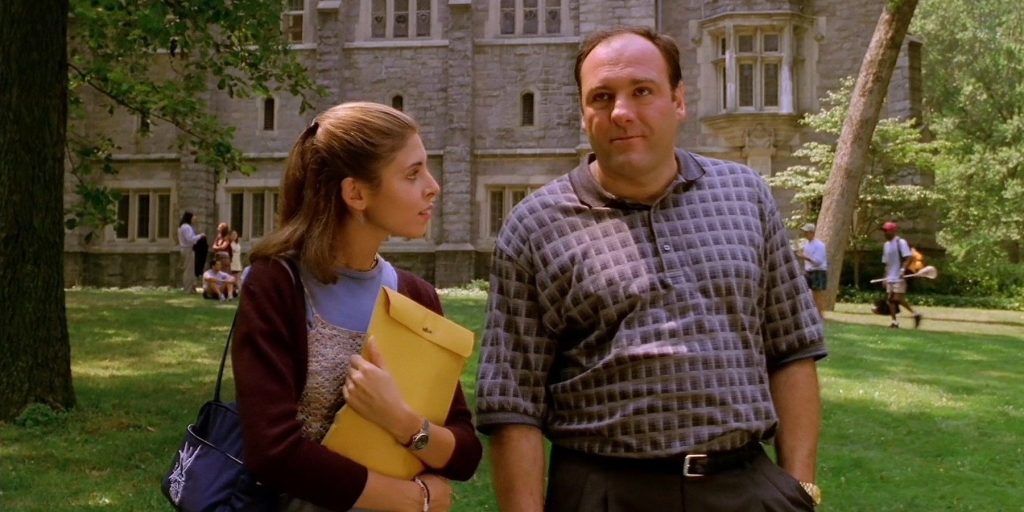“Life” (1999): Eddie Murphy’s 90s Farwell – Film Review

The 1999 film “Life” marries the comedic talents of Eddie Murphy and Martin Lawrence in what could be seen as an ambitious meld of humor and historical commentary, served with a side of syrupy life lessons. Directed by Ted Demme, this odd couple comedy-meets-prison drama tries to walk the tightrope between eliciting laughs and shedding light on the Jim Crow South, a balancing act it performs with the grace of a novice trapeze artist wearing oversized shoes.
Comedy Behind Bars
Eddie Murphy and Martin Lawrence play Ray and Claude, two New Yorkers who find themselves wrongfully convicted of murder and sentenced to life in a Mississippi penitentiary. The film spans several decades, following the duo’s misadventures and evolving friendship. Murphy, in particular, delivers a performance that reminds us of his energetic heyday, embodying Ray with a fast-talking swagger that nearly transcends the film’s sometimes plodding script. It’s a testament to Murphy’s skill that he can wring genuine laughs from material that often feels recycled from better films.
The Makeup Chair Time Machine
One of the film’s more notable achievements comes from the Oscar-nominated makeup effects, crafted by Rick Baker. Baker, a legend in the makeup world, transforms Murphy and Lawrence across the decades, aging them from spry, young hustlers to grizzled old men. The attention to detail in the makeup work is commendable and does much of the heavy lifting in conveying the passage of time within the film’s universe. Baker’s artistry allows for an almost seamless suspension of disbelief as the characters weather the passing of years, even if the surrounding film sometimes struggles to keep pace with the transformations.
Behind the Scenes and the Sands of Time
The production of “Life” had its own set of challenges, from recreating the look and feel of different eras to capturing the comedic chemistry between its leads. Shooting on location in California and New York, the filmmakers went to considerable lengths to transport audiences back in time, employing a combination of period-appropriate set design and costuming that effectively evokes the era. Behind the camera, Demme juggles the film’s tonal shifts, with varying degrees of success.
Laughing in the Face of Adversity (Or Trying To)
The screenplay, co-written by Robert Ramsey and Matthew Stone, attempts to find humor in the tragic and often brutal reality of life in a segregated South. This dark comedy approach is a double-edged sword that cuts deep when it works, but more often than not, it feels like it’s treading dangerous waters with a blindfold on. The result is a series of gags that sometimes land with the thud of a misaimed pie throw.
Cynical Eyes on Clichéd Paths
For the more cynical viewer, “Life” can feel like an attempt to reheat leftovers from better films. The narrative treads a well-worn path of wrongful imprisonment and dreams deferred, never fully committing to either its comedic or dramatic potential. It’s as if the film is an entrant in a race, unsure whether it’s sprinting for comedy gold or the dramatic finish line, ultimately ending up panting and spent somewhere in the middle.
Dynamics of a Duo
Despite the film’s narrative stumbles, the chemistry between Murphy and Lawrence is undeniable. They riff off each other with the ease of jazz musicians well-versed in the other’s rhythms, turning even the most pedestrian lines into something worth a chuckle. The supporting cast, including a standout performance from the late great Bernie Mac, rounds out the film with flavor, if not depth.
In the Shadow of Giants
“Life” will inevitably be compared to the prison film giants that came before it, like “Shawshank Redemption” or the comedic beats of “Stir Crazy.” It never quite reaches the heights of these predecessors, seeming content to sit in their shadows, cracking jokes while the audience’s memories fill in the gaps of gravitas.
Legacy of Laughs and Lessons
In the end, “Life” is a mixed bag of historical context and humor, a film that attempts to say something profound about the human spirit but often undermines its message with a wink and a nudge. It’s a film that showcases Murphy’s range and reminds us that beneath the laugh lines, there’s an actor capable of moving audiences. It’s just a shame that the vehicle for this performance sometimes sputters on the fumes of its own lofty ambitions.




